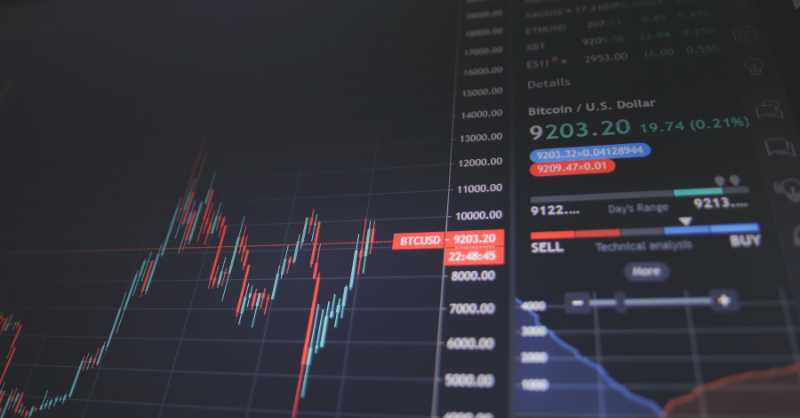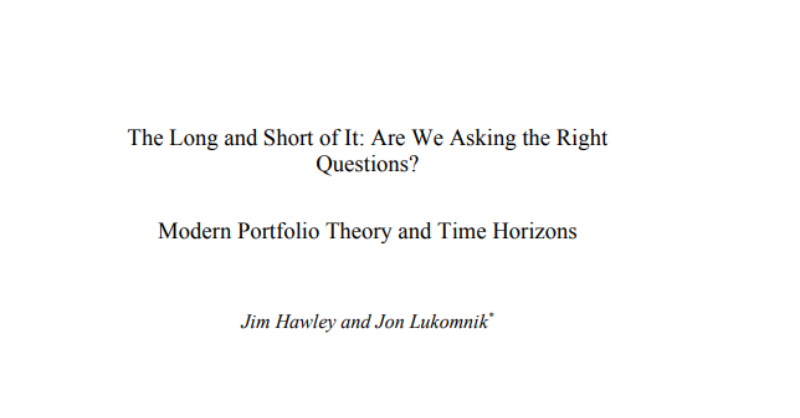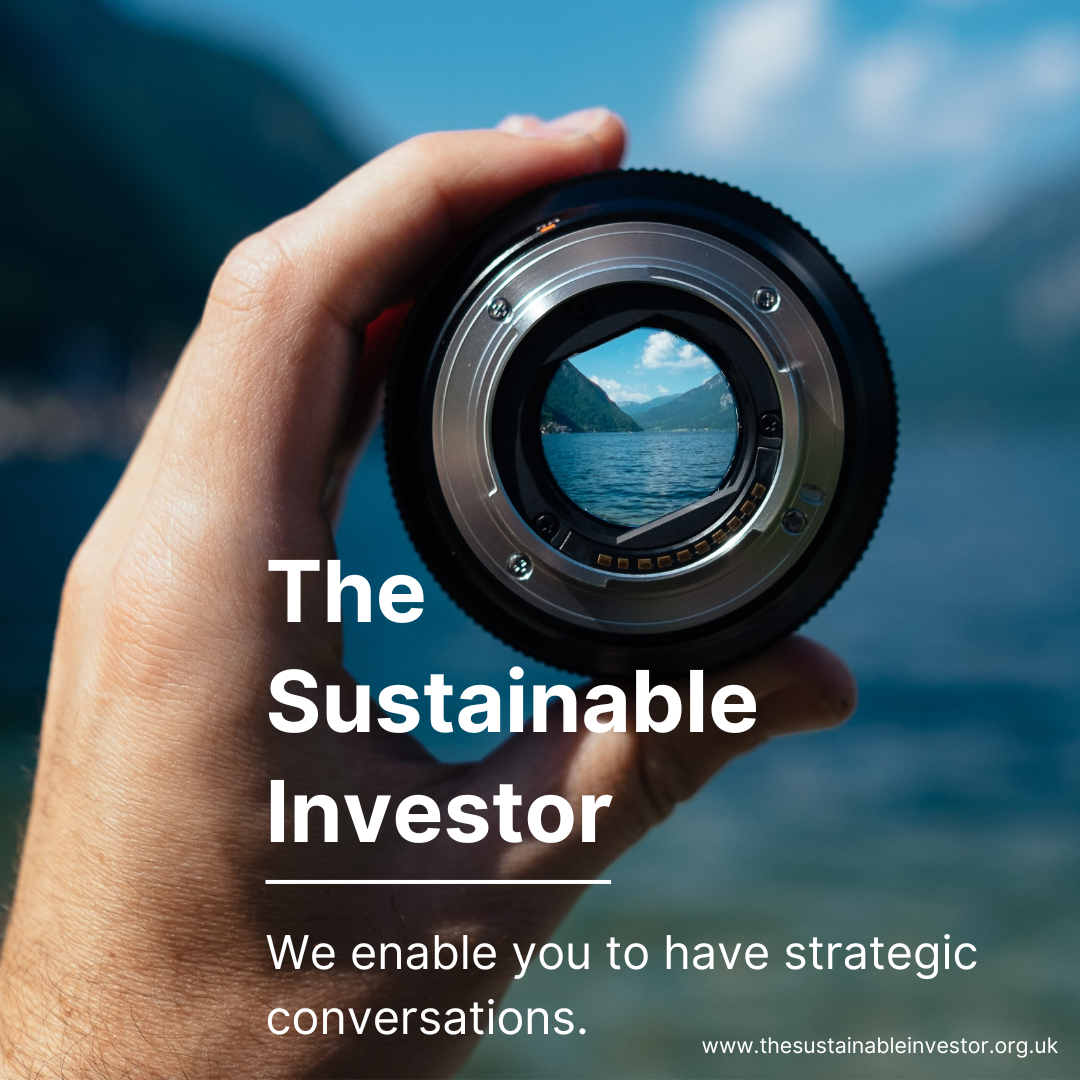
Sunday Brunch: investing is not just about generating alpha
At it's heart our financial system is really simple. Money flows from savers to spenders. Where this system struggles is when the actions of the spenders impose costs on the wider society that mean that the net return to savers (financial return minus imposed costs) are reduced.
At it's heart our financial system is really simple. Money flows from savers (retail, pension funds, endowments and family offices) to spenders (companies etc who want to invest, hopefully in productive assets). In return the savers get a financial return. One area where this system struggles is when the actions of the spenders impose costs on the wider society that mean that the net return to savers (financial return minus imposed costs) is reduced.
This is the concept behind Universal Owners - savers (ie investors) who hold broadly diversified portfolios. Describing this in financial terms, they are unable to avoid/diversify away these external costs on society, and so regardless of how good their asset managers might be at beating the index, their long term financial returns are diminished. Universal owners need to think about their investments differently, in a way that is alien to how most asset managers currently work. Change is coming.
"we are all Universal owners now" - Dr Ellen Quigley.
"What is the purpose of investing. No, that isn't a trick question" - Lukomnik & Hawley.
If you work in the finance industry your answer to the Lukomnik & Hawley question probably includes phrases like 'risk weighted returns' and 'generating financial alpha' for your clients. But in a way this misses a fundamental point. Investing is also about the real economy, what some people call Main Street (differentiating it from the financial world or Wall Street).
Ignoring for a moment that we live in Main Street, and so it's success directly impacts the quality of our lives', Main Street is also important to our real world financial returns. Studies suggest that over 75% of our financial return comes from the performance of the market as a whole, something financial people call beta. Which means that the skill of our asset manager, who is normally focused on relative outperformance or alpha, is likely to be less important to us than the financial health of the world in which we live, which generates our beta.
It's this insight that lies at the heart of the concept of the Universal Owner. These are investors (asset owners) who have an interest in the long-term health of the financial system as a whole. Why? Because they mainly rely on the return generated by the total market, not on stock picking skills. They cannot diversify away the risks to our economic system, such as climate change, biodiversity loss, rising inequality, and global pandemics. Given this they can only counter whole-system threats by effecting change in the real economy.

Why is the current approach not working?
I think it's clear to most of us that the current approach to sustainability investing is not working. This is not from a lack of effort, lots of people are working very hard. So maybe the message is not quite right. Maybe we are not reaching the financial decision makers in the right way.
One thing I learnt as an activist investor was the importance of seeing things from the other sides perspective. If I wanted to change their behaviour, I needed to create a message that worked for them. Which meant showing why the action I wanted them to take was beneficial to them.
Much of the analysis on sustainability starts with the ethical imperative for sustainable investing - the need to create environmental and social outcomes. Despite the rightness of the ethical and values based arguments, on it's own it doesn't seem to be moving the dial. We are not mobilising anywhere near enough financial capital. For every step forward, we seem to see two steps back.

We argue that we need to create a more rounded narrative, one that blends the values and ethical element (creating a just transition), with the financial. This would help us reach the large group who sit in the middle ground. They understand the need for action, but they don't see how it can fit into their financial decision making process.
You might think that ESG investing will fix this problem. After all, investing in either top quartile (or improving) ESG companies seems to not only deliver decent financial returns, but it offers the promise of also delivering the just transition.

But, as Dr Ellen Quigley points out, this is a false promise:
traditional environmental, social, and governance (ESG) frameworks tend to adopt a climate or social risk lens, with a focus on risks to the portfolio from the real economy. These ESG frameworks have little to no impact on the real economy.
And in a way it's worse than that. For an individual company, the optimal (financial) action to take can be to keep externalities at arms length, to leave the cost with the wider society. But these costs then fall on their investors, the Universal owners. And as we pointed out earlier, this has financial as well as ethical implications.
Universal Owners need a financial framework that includes the impact on the real economy, Main Street rather than just Wall Street.
In a sustainable world, are we all Universal Investors now?
While I like the term Universal Owners, the definition implies that it only applies to large institutional asset owners, so pension funds, university endowments, and sovereign wealth funds. But if you phrase it slightly differently, using the term long-term investors, you can see that you might be a Universal Owner as well. After all, 'long term investors' includes all of us who are saving for an event in the relatively distant future, maybe our retirement, or a child's education, or even to pass capital on to future generations. And most long term investors are exposed more to market return, than to the stock picking skills of their asset managers.
These long-term diversified owners of capital cannot stock-pick their way out of systemic risks, since a fully diversified portfolio will own the negative effects of the environmental and social externalities as well. Studies have shown (Ibbotson 2010; Brinson, Hood, and Beebower 1986; Hawley and Lukomnik 2018) that the majority of asset owners’ financial returns can be attributed to beta (performance of the market as a whole).

And yet their attention – and that of their fund managers – goes instead to alpha (relative outperformance). Because a diversified owner’s returns overwhelmingly rely on the health of the market as a whole, Universal Owners are better off working to reduce systemic risks at their source as opposed to attempting to stock-pick away from them.
What if I don't think climate is a financial problem?
Because even low probability events can have material impacts on your long term financial returns. Let's say you think that the probability of deteriorating environmental and social factors has a low chance of impacting your financial returns. So, it's not worth taking action until we can be sure of the impacts. We argue that this is a bit like you thinking that the chances of my house burning down are small, so let's not take out fire insurance. Or, let's not plan for floods.

Taking a more commercial approach. Many years ago I used to work in the LPG industry. Poorly handled the storage and transport of LPG can be very dangerous. So the sensible thing to do is to consider tail risks, things that have a low probability of happening, but that would have serious consequences. I don't mean really unlikely events, we are talking here about actions that were realistic. We then either designed the system to make them less likely to have a serious impact, or we prepared. We knew that these tail risks could put us out of business.
Something a little more bespoke?
Get in touch if there is a particular topic you would like us to write on. Just for you.
Contact us
Please read: important legal stuff.



